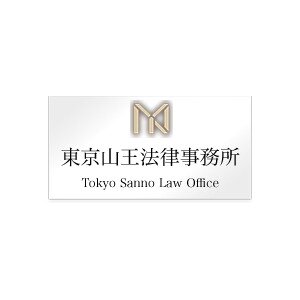Best Franchising Lawyers in Minato
Share your needs with us, get contacted by law firms.
Free. Takes 2 min.
List of the best lawyers in Minato, Japan
About Franchising Law in Minato, Japan
Franchising in Minato, Japan, operates under the broader Japanese legal framework. While there is no specific franchising law in Japan, several laws impact franchising operations. These include the Civil Code, the Commercial Code, the Anti-Monopoly Act, and guidelines issued by the Japan Fair Trade Commission (JFTC). Minato, a commercial hub in Tokyo, is home to many domestic and international franchise businesses, making it a vibrant environment for the franchising industry.
Why You May Need a Lawyer
Common situations where legal help may be required include drafting and reviewing franchise agreements, resolving disputes between franchisors and franchisees, compliance with Japanese business regulations, and intellectual property protection. A lawyer can also assist with understanding the legal aspects of cross-border franchising and the implications of local and international franchising laws.
Local Laws Overview
Local laws that are particularly relevant to franchising in Minato reflect the national regulations of Japan. Key aspects include ensuring truthful representation in franchising recruitment, compliance with competition laws, respecting termination and non-renewal rights, and conforming to disclosure requirements. Understanding these regulations and how they apply to day-to-day operations is critical for anyone involved in franchising.
Frequently Asked Questions
What legal documents are essential for franchising in Japan?
The most critical legal document is the franchise agreement, which should be drafted in accordance with Japanese law. Other important documents may include disclosure documents, intellectual property licenses, and non-disclosure agreements.
Are there any language requirements for franchising documents?
While not legally mandated, franchising documents should ideally be prepared in both Japanese and English to ensure clear understanding by all parties involved.
How does the Anti-Monopoly Act affect my franchise?
The Anti-Monopoly Act prevents businesses, including franchises, from engaging in monopoly practices and ensures fair competition. This could affect pricing, territory allocation, and supplier choices.
What are the rights of a franchisee in Japan?
Franchisees have rights to operate under the brand, use the business system, and receive support from the franchisor. They also have rights under general contract law for fair treatment and the ability to terminate the agreement under certain conditions.
Can foreign entities franchise in Japan?
Yes, foreign entities can franchise in Japan. However, they must comply with Japanese laws and may need to set up a local entity or appoint a local representative or master franchisee.
What is required in the disclosure process?
Although not legally enforced, it is common practice to provide a disclosure document, including information about the franchisor, the franchise system, and financial statements.
Is it essential to register trademarks in Japan for franchising?
While not compulsory, it is highly advisable to register trademarks to protect the brand and avoid infringement issues.
How are franchise disputes typically resolved?
Disputes can be resolved through mediation, arbitration, or litigation. The franchise agreement should specify the agreed dispute resolution method.
What are the typical terms for franchise agreement termination?
Termination clauses vary but usually include breach of contract, insolvency, or mutual agreement. A notice period and terms for settlement are also commonly stated.
How long does it take to establish a franchise in Minato?
The time frame varies based on factors like brand recognition, negotiation period for the franchise agreement, and setting up the physical franchise location. It can range from several months to over a year.
Additional Resources
Resources that may be beneficial include the Japan Franchise Association (JFA) which provides information on franchising in Japan, the Japan External Trade Organization (JETRO) for guidance on setting up a business, and the Japan Fair Trade Commission (JFTC) for regulations on fair trade practices. Consulting frameworks can provide insights into market analysis and franchising strategies.
Next Steps
If you require legal assistance in franchising, your next steps should be to consult with a lawyer who specializes in franchising and Japanese law. A knowledgeable lawyer can help navigate the complexities of franchise agreements, ensure compliance with regulations, and provide tailored advice for your business. Consider retaining a lawyer based in Minato or with experience in this diverse business district for more localized assistance.
Lawzana helps you find the best lawyers and law firms in Minato through a curated and pre-screened list of qualified legal professionals. Our platform offers rankings and detailed profiles of attorneys and law firms, allowing you to compare based on practice areas, including Franchising, experience, and client feedback.
Each profile includes a description of the firm's areas of practice, client reviews, team members and partners, year of establishment, spoken languages, office locations, contact information, social media presence, and any published articles or resources. Most firms on our platform speak English and are experienced in both local and international legal matters.
Get a quote from top-rated law firms in Minato, Japan — quickly, securely, and without unnecessary hassle.
Disclaimer:
The information provided on this page is for general informational purposes only and does not constitute legal advice. While we strive to ensure the accuracy and relevance of the content, legal information may change over time, and interpretations of the law can vary. You should always consult with a qualified legal professional for advice specific to your situation.
We disclaim all liability for actions taken or not taken based on the content of this page. If you believe any information is incorrect or outdated, please contact us, and we will review and update it where appropriate.









